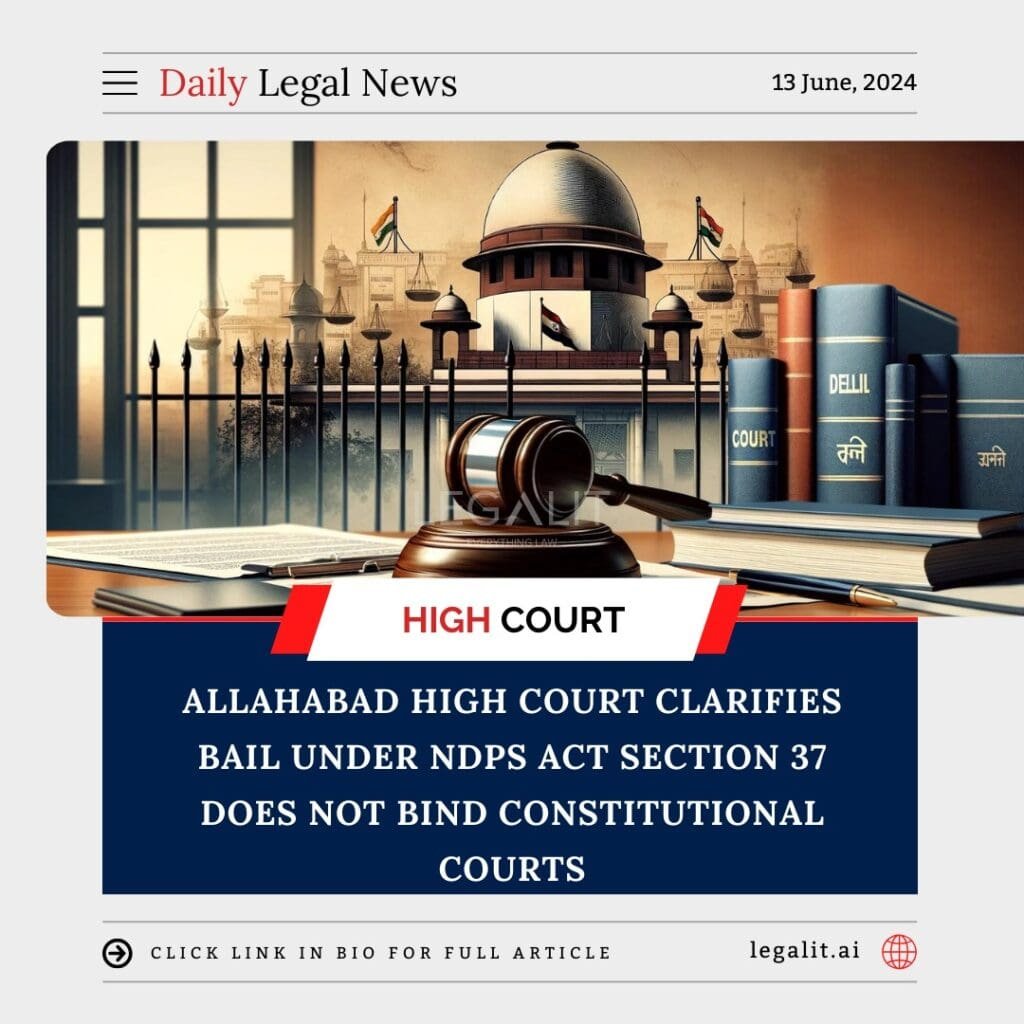
In a recent ruling, the Allahabad High Court has clarified that the stringent conditions for granting bail under Section 37 of the Narcotic Drugs and Psychotropic Substances (NDPS) Act do not apply to constitutional courts, such as the High Courts and the Supreme Court. This landmark decision underscores the discretionary powers of these courts in balancing the principles of justice and individual rights against the stringent anti-drug laws.
Context and Legal Framework
Section 37 of the NDPS Act imposes strict conditions for granting bail in cases involving serious drug offenses. The provision mandates that bail can only be granted if the court is satisfied that there are reasonable grounds to believe that the accused is not guilty of the offense and is not likely to commit any offense while on bail. Additionally, the public prosecutor must be given an opportunity to oppose the bail application【229†source】【230†source】.
Court’s Observations
The Allahabad High Court emphasized that while lower courts are bound by these stringent conditions, constitutional courts have broader discretionary powers to grant bail. The court highlighted the need to ensure that the strict application of Section 37 does not lead to unjust incarceration, especially in cases where prolonged pre-trial detention might violate fundamental rights【231†source】【232†source】.
Implications
This ruling has significant implications for how bail applications under the NDPS Act are handled by higher judiciary. It reaffirms the role of constitutional courts in safeguarding individual liberties and ensuring that justice is not compromised by procedural strictures. The decision is expected to influence future bail applications in NDPS cases, providing a more balanced approach to handling such sensitive matters.